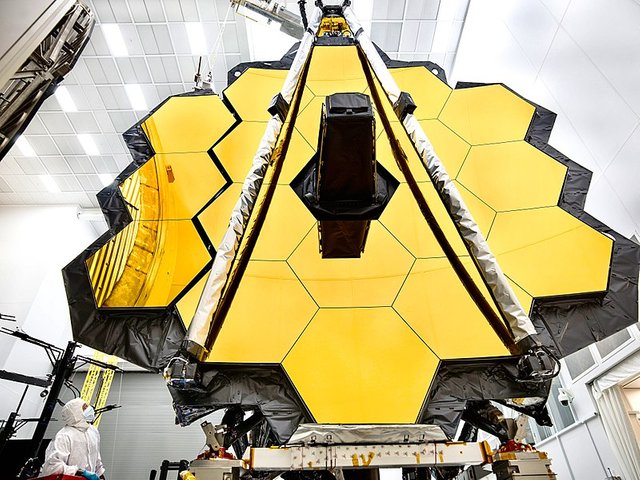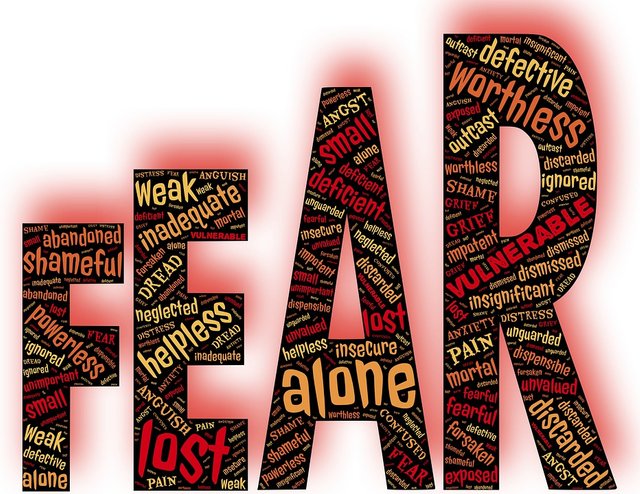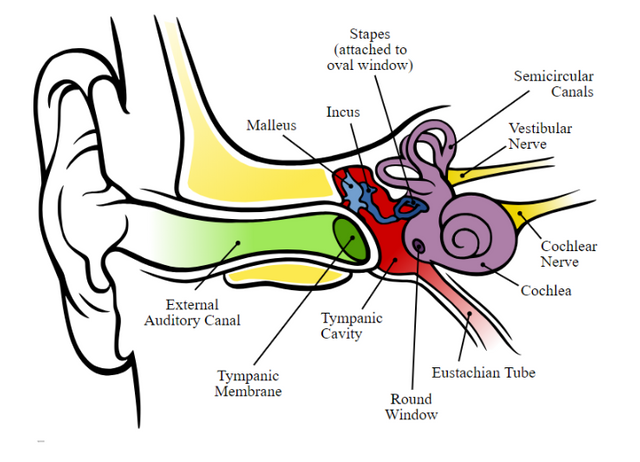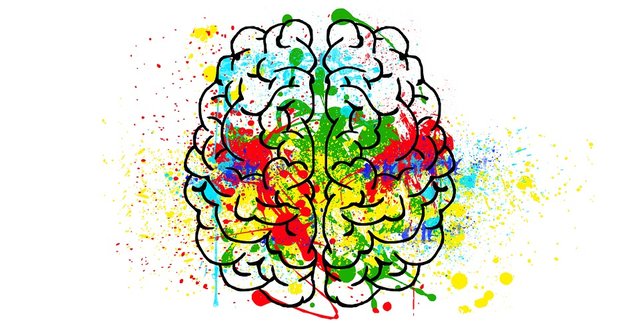Da Vinci Times #16.0
DAVINCI GAGS

Image created by @pab.ink and sponsored by @davinci.times
WEEKLY RECAP

Image created by @elivsxx71
MAIN NEWS
Recreated the Neanderthal brain
 Imagine CC0 Creative Commons - Source
Imagine CC0 Creative Commons - SourceCRISPR technology never ceases to amaze. It is a technology that has emerged in recent years, and allows to modify the DNA with extremely high precision. Thanks to CRISPR it was possible to recreate a (small) brain of the Neanderthal by modifying totipotent stem cells. To date, to study the evolution of the human brain, scientists based themselves on the shape of the skulls found. This is a very important result, which will allow us to study in depth the differences between our brain and the one of our next of kin.
The concept of death in dolphins
The dolphins could be able to understand the concept "mourning", and to have some sort of care for members of their own species, after they die. It is a hypothesis that has yet to be verified, and a sufficient amount of data is still missing to carry out a study that can clarify the issue. If confirmed, the dolphins would be added to the (short) list of animals that have such behaviors. For the moments only primates and elephants show some kind of cure for the dead.
 Imagine CC0 Creative Commons - Source
Imagine CC0 Creative Commons - SourceNew delays for James Webb
The James Webb space telescope won’t be launched before 2021, due to numerous technical problems that are occurring during the last phases of construction. A further delay on the roadmap (the launch was scheduled for the autumn of 2018) that will be a problem for NASA’s budget: we are talking about a figure that is around 800 million dollars. They will be partly recovered by cutting the funds of other projects. A blow to scientific research.
 Imagine CC0 Creative Commons - Source
Imagine CC0 Creative Commons - SourceSELECTED POSTS

Imagine CC0 Creative Commons - Source
@ideas-abstractas, after last week's posts, returns talking to us about “fear”; tonight he addresses the topic from a “physiological" point of view, asking how and why it has developed, and how it influences us.

Imagine CC0 Creative Commons - Source
@deathbatter offers us an interesting post on the “Voice”: the voice that we normally use, the one we reserve for certain situations, the one that others perceive when we speak, and our inner voice. What characterizes each of them?

Imagine CC0 Creative Commons - Source
Many of us could tell that when they were young, at least once, they answered to the question of an adult with the phrase "I want to be an astronaut!" Nowadays, even if space continues to fascinate us, it is clear that it is a place that, in addition to the many wonders, also hides many dangers; today @anomalogy tries to tell us which ones.

Imagine CC0 Creative Commons - Source
Nowaday, videogames are certainly one of the most growing sectors, growth to which both young and old contribute in equal measure. But what is this great success based on? And how videogames can influence our brain?
POST OF THE WEEK
I Think Sick, Thus I Am Sick by @lesshorrible

Imagine CC0 Creative Commons - Source
Someone argue that many diseases that affect humans are the result of our mind; it is a simplistic statement and, in a lot of cases, even false. Nevertheless, the power of our mind can lead us to manifest some symptoms just because we convince ourselves to be sick. @lesshorrible explains how it is possible./div>

Immagine CC0 Creative Commons, si ringrazia @mrazura per il logo ITASTEM.
CLICK HERE AND VOTE FOR DAVINCI.WITNESS
Keep in mind that for organizational reasons it’s necessary to use “steemstem” and “davinci-times” tags to be voted.
@zest - @spaghettiscience - @rscalabrini

DAVINCI GAGS

Image created by @pab.ink and sponsored by @davinci.times
RECAP SETTIMANALE

Image created by @elivsxx71
NOTIZIE PRINCIPALI
Riprodotto il cervello di Neanderthal
 Imagine CC0 Creative Commons - Source
Imagine CC0 Creative Commons - SourceLa tecnologia CRISPR non smette di stupire. Si tratta di una tecnologia che permette di modificare il DNA con una precisione elevatissima, e si è affermata negli ultimi anni. Grazie ad essa è stato possibile ricreare in piccolo, modificando cellule staminali totipotenti, il cervello dell’uomo di Neanderthal. Fino ad oggi per studiare l’evoluzione del cervello umano gli scienziati si sono basati sulla forma dei crani rinvenuti. Questo è un risultato importantissimo, che permetterà di studiare a fondo le differenze tra il nostro cervello e quello dei nostri parenti più prossimi.
Il senso della morte nei delfini
È possibile che i delfini siano in grado di concepire il “lutto” e di avere una sorta di cura per i membri della propria specie, dopo che questi muoiono. È un’ipotesi che deve ancora essere verificata, e che manca ancora di una quantità sufficiente di dati che occorrono per effettuare uno studio che possa chiarire la questione. Se fosse confermata, i delfini si aggiungerebbero alla (corta) lista di animali che hanno comportamenti di questo tipo. Per il momento, solo i primati e gli elefanti mostrano un qualche tipo di cura per i defunti.
 Imagine CC0 Creative Commons - Source
Imagine CC0 Creative Commons - SourceNuovi ritardi per James Webb
Il telescopio spaziale James Webb verrà lanciato non prima del 2021, a causa di numerosi problemi tecnici che si stanno verificando durante le ultime fasi di costruzione. Dunque, un ulteriore ritardo sulla tabella di marcia (il lancio era previsto per l’autunno del 2018) che comporterà un ulteriore aggravio per le casse della Nasa: si parla di una cifra che si aggira attorno agli 800 milioni di dollari che saranno recuperati in parte tagliando i fondi di altri progetti. Un duro colpo per la ricerca scientifica.
 Imagine CC0 Creative Commons - Source
Imagine CC0 Creative Commons - SourcePOST SELEZIONATI

Imagine CC0 Creative Commons - Source
@ideas-abstractas, dopo i post della scorsa settimana, torna a parlarci della paura; questa sera affronta l’argomento dal punto di vista “fisiologico”, chiedendosi come e perché essa si sia sviluppata e in quale modo influisca su di noi.

Imagine CC0 Creative Commons - Source
Questa sera @deathbatter ci propone un interessante post sulla voce: la voce che utilizziamo normalmente, quella che riserviamo a determinate situazioni, quella che gli altri percepiscono quando parliamo e la nostra voce interiore. Cosa caratterizza ciascuna di esse?

Imagine CC0 Creative Commons - Source
Molti di noi potrebbero raccontare che, almeno una volta, quando erano piccoli, hanno risposta alla domanda di un adulto con la frase “Io voglio fare l’astronauta!” Eppure, per quanto lo spazio continui ad affascinarci, è chiaro che si tratti di un posto che oltre alle tante meraviglie nasconde anche molti pericoli; oggi @anomalogy prova a raccontarci quali.

Imagine CC0 Creative Commons - Source
I videogiochi rappresentano sicuramente uno dei settori maggiormente in crescita al giorno d’oggi, crescita alla quale contribuiscono i più piccoli ma anche i meno giovani. Ma su cosa si base questo grande successo? E come riescono, i videogiochi, ad influenzare il nostro cervello?
POST OF THE WEEK
I Think Sick, Thus I Am Sick by @lesshorrible

Imagine CC0 Creative Commons - Source
Alcuni sostengono che molte malattie che colpiscono l’uomo siano frutto della nostra mente; si tratta di un’affermazione decisamente semplicistica e, nella maggior parte dei casi, anche falsa. Ciononostante il potere della nostra mente può portarci a manifestare alcuni sintomi solo perché noi stessi ci convinciamo di essere malati. @lesshorrible ci spiega come sia possibile.

Immagine CC0 Creative Commons, si ringrazia @mrazura per il logo ITASTEM.
CLICK HERE AND VOTE FOR DAVINCI.WITNESS
Si ricorda che per motivi organizzativi è necessario utilizzare le tag “steemstem” e “davinci-times” per essere votati.
@viki.veg - @spaghettiscience - @rscalabrini